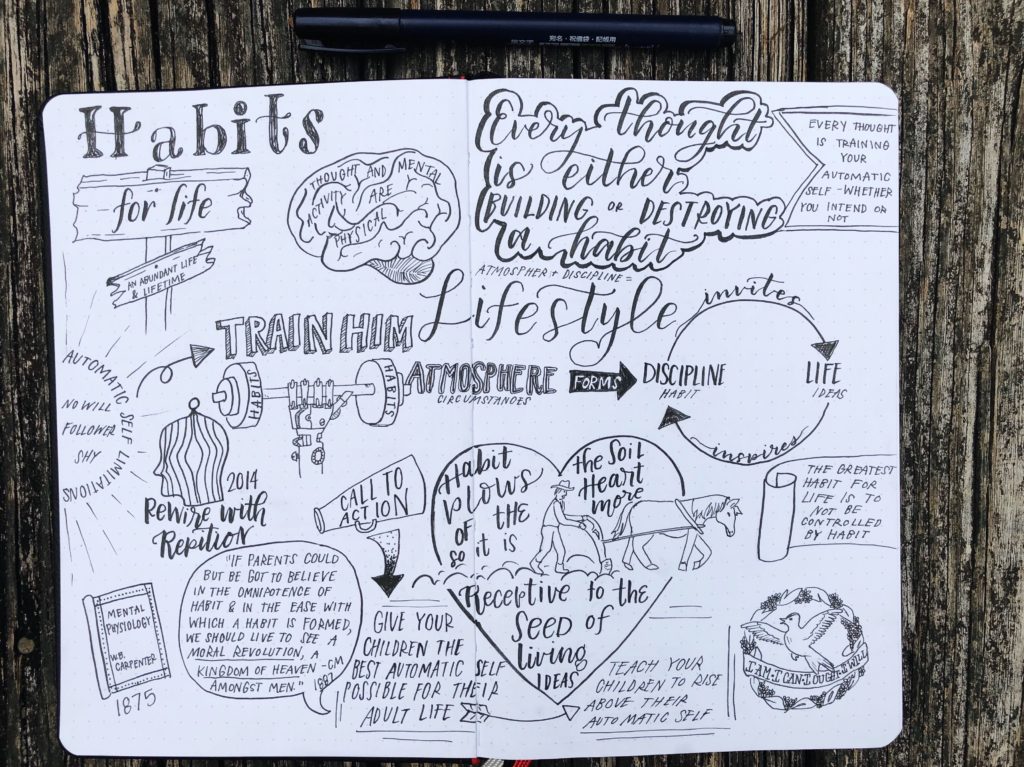Habits for Life
In 1890, Charlotte Mason wrote, “Is not physiology hurrying up with the announcement that to every man it is permitted to mould and modify his own brain?” By 1894, Mason clearly saw the implications: “Within our own time the science of Education has been absolutely revolutionised, not by educationalists, but by Physiologists, who have made the brain their specialty.” Why was physiology so impactful to education? Because, Mason explains, “this business of laying down lines towards the unexplored country of the child’s future is a very serious and responsible one for the parent. It rests with him to consider well the tracks over which the child should travel with profit and pleasure.”
Are the discoveries of 19th-century physiologists still relevant today? Can the parent really lay down lines of travel for the child’s future? These are the questions explored in this live recording from the 2019 Gospel Vision for Children conference. The accompanying slides are available for download.
Subscribe: Apple Podcasts | Spotify | Amazon Music

3 Replies to “Habits for Life”
Thank you! This was very helpful in understanding how habit fits with education as a lifestyle!
Thank you, Art! This was a wonderful, helpful presentation. I am curious after hearing this again, to know your thoughts on the role of the Holy Spirit in all of this?
Anne,
In the preface to the third edition of Parents and Children, Charlotte Mason writes:
The Parents’ Union exists to advance, with more or less method and with more or less steadfastness, a definite school of educational thought of which the two main principles are—the recognition of the physical basis of habit, i.e., of the material side of education; and of the inspiring and formative power of ideas, i.e., of the immaterial, or spiritual, side of education.
My aim in this talk was to focus on the first of the two main principles—“the recognition of the physical basis of habit.” There are many other articles on Charlotte Mason Poetry that focus on the second principle. Like this talk, chapter 15 of Parents and Children focuses on the first principle. In that chapter, Mason acknowledges that a deep exposition of the first principle leaves little room to explore the second:
This is hardly the place to consider them, but think for a moment of the fitness of the ideas which are summed up in the thought of Christ to be presented to the poor degraded soul… (p. 163)
I faced the same challenge when I prepared this talk. I had hardly the space to consider the second principle. In the next sentence of chapter 15, Mason points explicitly to the real agency of the Holy Spirit:
The divine idea once received, the divine life is imparted also, grows, is fostered and cherished by the Holy Ghost. The man is a new creature, with other aims, and other thoughts, and a life out of himself. The old things have passed away, and all things have become new—the physical being embodying, so to speak, the new life of the spirit. (p. 164)
The automatic self is a wonderful, physical gift from God. I’m so glad I have this capacity built into my body and brain. But the automatic self has no will, and hence no love. Charlotte Mason wrote that “The very essence of Christianity is personal loyalty, passionate loyalty to our adorable Chief.” That’s not a job for the automatic self. That’s a job for the heart. And the Holy Spirit is waiting for me with open arms. And He’s waiting for your children too.
Blessings,
Art